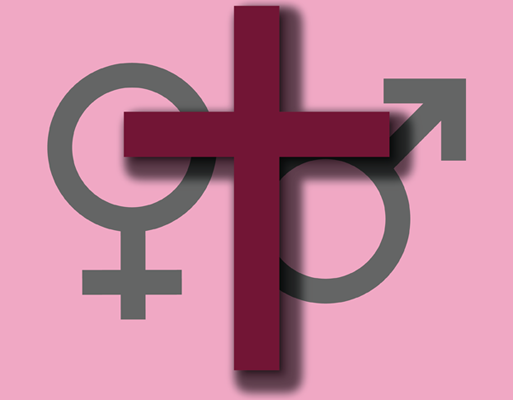Just because we tolerate religious prejudice doesn’t mean we have to give it air

A fortnight ago, Mercury correspondent Samuel Green took aim at atheists “who feel it is their duty to remove from the public space any culture that does not agree with theirs”.
I’d go further. No-one, whatever their religious outlook, should try to silence others just because they hold different personal beliefs. That is, so long as those beliefs wouldn’t harm others.
A lot is being said right now on this topic. One impact of this discussion may be to widen the gap between people who believe and those who don’t, or between people of different religious faiths.
It felt like a huge step when I realised long ago that I no longer believed in the divinity of Jesus. But Seven Types of Atheism, a recent book by English philosopher John Gray, has convinced me that the things we have in common around religious belief are far more significant than those separating us.
To Gray, the “new atheism” we’re probably most familiar with, which uses science to try to dispel religion, is shallow and uninteresting. These people, who learned their trade from Christianity, are in their way evangelists, not so different from the Inquisitors who tried to silence Galileo.
But atheism more broadly is integral to the history of religion. Many ancient thinkers were atheists. Early Christians seeking to replace the Roman pantheon with just one god were atheists in the eyes of Romans. Even St Augustine was open to atheistic alternatives to the Genesis creation story.
Belief and unbelief aren’t opposites, says Gray, but simply “poses the mind adopts in the face of an unimaginable reality”. And science can’t displace religious practice, which “expresses a need for meaning which would remain unsatisfied even if everything could be explained.”
Atheism has always had a place in religions founded on observance or practice, such as Buddhism and Judaism, but often finds itself at odds with belief systems like Christianity (and to some extent Islam) that ask followers to adhere to specific propositions.
I no longer believe as I used to, but I continue to cherish Christian traditions and values, and the infinite variety of religious art, architecture, music, literature and practices of all faiths.
Religion and atheism are both part of our lives, and each has its value. But neither should dominate public life. Too many people have suffered under both religious and atheistic regimes.
Like art or poetry, religion is a way of seeing the world, a matter for the heart, over which science has no authority. But nor does religion have authority over science, and science has thrown useful light on some old beliefs which got rugby star Israel Folau into hot water.
The Australian Rugby Union’s rules about treatment of people cover homosexual and transgender minorities. Under the terms of their contract, ARU players may not publicly attack these minorities.
Folau, a member of the Assemblies of God, puts faith in Jesus at the centre of his life. During and since the marriage equality debate in 2017 he has several times stated his belief that homosexuals who don’t repent of their “sins” and turn to God will go to hell.
Folau’s views were mine too (albeit in a watered-down Anglican form) when I practised religion. But in the life I have since lived, I found some people whom many Christians class as sinners to be good and decent, as well as interesting and enjoyable company.
Religious teachings may help guide people through life’s complexities, but they can never be the entire deal. Science supports a wider perspective, and investigating the biology behind people’s sexual identity is something it does well.
It has found that homosexuality, gender ambiguity and other minority forms of sexual identity are entirely natural and pretty much locked in place when a person is born. It follows that such people cannot be said to have sinned, and should be free to express their sexuality without fear of censure.
It took a long time for the Australian legal system to acknowledge the truth of this and stop treating homosexuality as a crime. We continue to tolerate belief systems that refuse to do the same, but that doesn’t mean we should indulge them.
Folau is free to hold personal views about homosexuality and express these within his religious fraternity, just as I may have personal thoughts and express them privately. But neither of us should feel free to use a public forum to condemn a vulnerable minority.
Civil society needs rules of engagement that hold us together and protect the vulnerable – precepts supported by all great religions. People of faith have every reason to put old prejudices behind them and accept what we now know to be true about human sexuality.
Equally, atheists and believers alike should always put greater store in what they have in common than what separates them. We don’t need a debate about religious freedom. If we can only bring ourselves to stop denouncing and excluding others, we’ll be just fine.
